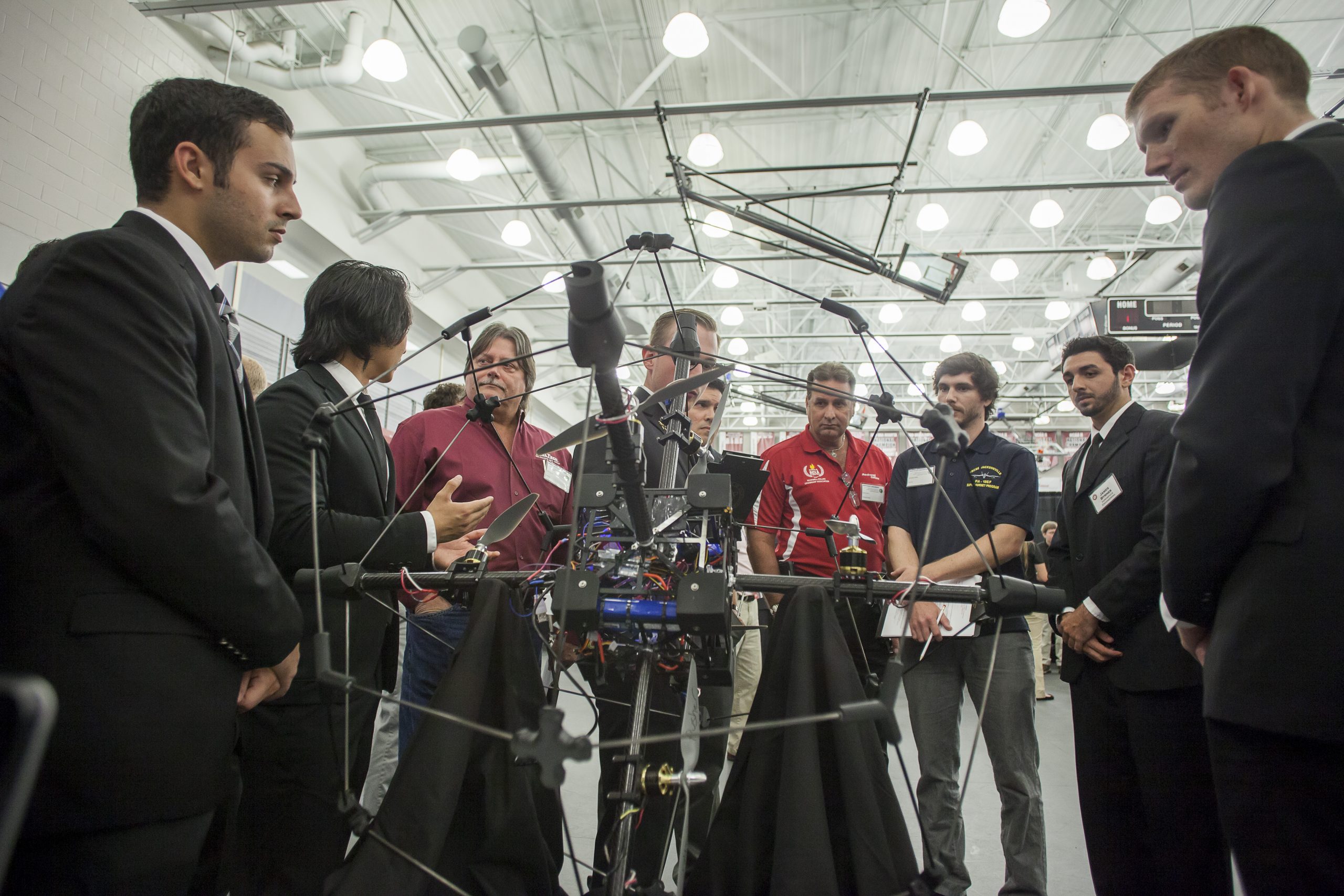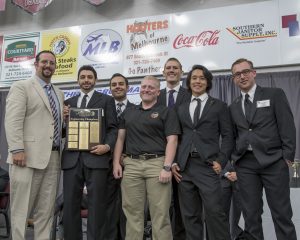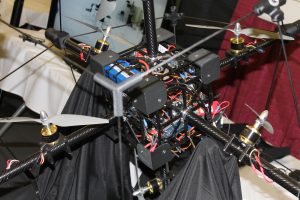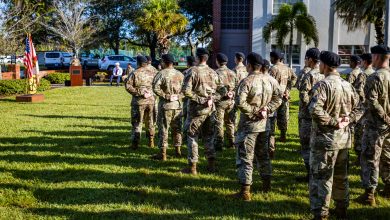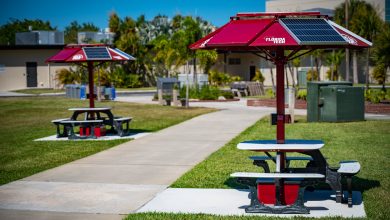Unmanned Aerial Vehicle Design Wins Northrop Award
A group of seven aerospace, computer and software engineers took home the Northrop Grumman Award for Engineering during 2016 Northrop Grumman Engineering & Science Student Design Showcase for their innovative unmanned aerial vehicle (UAV) design.
Team AirBall’s objective was to design, build, and fly a multi-rotorcraft that achieves full six degrees of freedom maneuvers to facilitate research as well as improve techniques for satellite dynamic and kinematic control.
Their project provides a solution to an affordable and physical satellite simulator. Not only is it applicable for satellite attitude control research, but with future research and development, this rotor craft has the potential to revolutionize the UAV industry.
“We knew the full, decoupled, six degrees of freedom flight has never been achieved before,” aerospace engineering student James Byrnes said. “We were inspired by how innovative and complex this project was and were determined to exceed the faculty’s expectations.”
The team’s omnidirectional UAV, capable of of decoupled motion, provides a higher degree of controllabilty to the operator.
“This UAV would be ideal for close quarter environments where the increased controllability is necessary,” Byrnes said. “For example, infrastructure inspection for sewer pipes, or search and rescue in dense forests or collapsed buildings.”
Byrnes group members discovered having a small team with members also being close friends creates the best work environment. When team members spend time together outside of school, they get to know each other on a more personal level. These relationships affect overall team performance, especially during meetings, Byrnes said. In addition, the team is more likely to express their opinions and ideas without worrying about being judged.
“This was crucial during problem solving and decision-making for the project,” Byrnes said. “Team members were more accountable to deliver on time because if they didn’t, they were not just disappointing their team, they were disappointing their friends.”
Byrnes advises students to choose a project that is both challenging and interesting.
“Make it challenging to prove to faculty you’re serious about your education,” Byrnes said. “Make it interesting so your team members are passionate about their work so they’re not discouraged when faced with problems or failures.”

